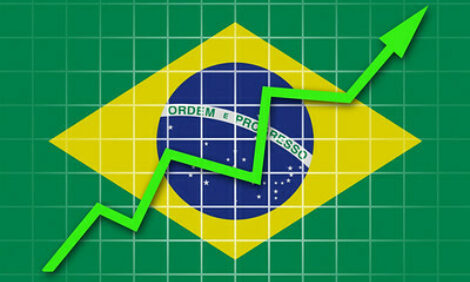



Weekly Overview: World Water Week Focuses Attention on Priorities
ANALYSIS - World Water Week takes place this week, just as issues of drought and excessive rainfall are daily in the news. Water is a precious resource and one we would do well to use wisely. One US chicken company has announced a further cut in production as a means to mitigate rising feed costs. A survey has revealed that UK consumers say they are willing to pay more for 'welfare-friendly' meat - but would they in practice?This week is World Water Week, a time when governments, environmental organisations, industry and agriculture turn their attention to the importance of this vital resource.
It is ironic and apposite that it is taking place at a time when the US in particular is experiencing one of the worst droughts it can remember and when once again, parts of Eastern Europe have also been hit by drought - to say nothing of the common regions for water shortage in Africa.
Part of the aim of this focus week is to turn attention on the regions where populations do not have supplies of safe water to drink and water for sanitation.
In Europe, Development Commissioner, Andris Piebalgs said that water and sanitation is one of the four Millennium Development Goals being targeted with a cash injection of €266 million.
However, he added: "But water is not only vital for drinking and hygiene purposes, it is also key to agriculture. Worldwide, 70 per cent of water is used as irrigation water to grow food, for example, and in some developing countries, this figure increases to over 85 per cent. It's clear that access to water and food security are, therefore, closely interlinked."
Effects of a lack of water in essential growing areas is being felt by the entire globe. The Food and Agriculture Organisation of the United Nations (FAO), when releasing its most recent global food price index, also issued a stark warning over the potential that droughts and even untimely and excessive rainfall may have for a worldwide disaster .
"The severe deterioration of maize crop prospects in the United States following extensive drought damage pushed up maize prices by almost 23 per cent in July," the FAO said. "International wheat quotations also surged 19 per cent amid worsened production prospects in the Russian Federation and expectations of firm demand for wheat as feed because of tight maize supplies."
As an example of the effects of the drought on the poultry industry, Sanderson Farms Inc. has announced that it is cutting broiler production in the face of rising feed costs.
Chairman and chief executive officer, Joe F. Sanderson, Jr., commented: "While market prices for chicken remain higher than they were last year and have strengthened over the past few weeks, they are not high enough to offset what we now expect to be significantly higher input costs during the coming months.
"In light of these costs, beginning August 6, 2012, we reduced our egg sets by two per cent across all Company divisions to lessen the impact of the higher grain costs we are facing. This reduction was in addition to the four per cent reduction started January 1, 2012, and we will run our plants at six per cent below capacity until market conditions improve."
Consumer surveys are notoriously unreliable predictors of consumer behaviour but the latest, from the UK, indicates that consumers are willing to pay more for animal products from more welfare-friendly systems.
Research at the University of Reading suggests that people are willing to pay more for even a slight improvement in the well-being of the animals in their meals, appearing to favour cows and chickens over pigs.
Professor Richard Bennett, an agricultural economist who advises the UK government on animal welfare issues, is leading University's research assessing the extent to which people want to improve the welfare of farm animals.
"Our research shows that people are overwhelmingly concerned about the welfare of animals bred for meat, and would be willing to pay more each year for even a one-point increase on the happiness scale of the animals they eat," Professor Bennett said.
The study suggests that for just a one-point increase on the animal welfare 100-point scale, consumers are willing to pay £5.10 a year to improve the welfare of chickens.
At the recent World Poultry Congress, the control of bird flu was reviewed by one of the leading experts on this topic, Dr David Swayne. Outbreaks of highly pathogenic avian influenza (HPAI) have tended to be more severe and prolonged in less developed countries with a high poultry density, he said, adding that stamping out is the best method for eradication but vaccination can also be an effective tool.









